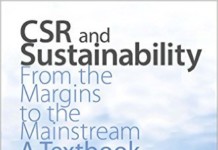By Walter J. Palmer, Variorum, January 2015
While international negotiations to reduce greenhouse gas (GHG) emissions have been less than satisfactory, there is a presumption that a signifi cant level of multilateral commitment will be realized at some point. International air and marine travel have been left to one side in past talks because the pursuit of agreement proceeds on the basis of commitment by sovereign nations and the effects of these specifi c commercial activities are, by their nature, diffi cult to corral and assign to specifi c national jurisdictions. However, air travel is increasing and, unless something is done, emissions from this segment of our world economy will form a progressively larger percentage of the total, especially as emissions fall in other activities.
This book focuses on fuel. The aim is to provide background in technical and policy terms, from the broadest reliable sources of information available, for the necessary discourse on society’s reaction to the evolving aviation emissions profi le. It considers what policy has been, why and how commercial air travel is committed to its current liquid fuel, how that fuel can be made without using fossil-source materials, and the barriers to change. It also advances some elements of policy remedies that make sense in providing an environmentally and economically sound way forward in a context that comprehends a more complete vision of sustainability than ‘renewable fuels’ traditionally have. The goal of the book is to broaden and contextualize the knowledge resource available to academics, policy makers, air industry leaders and stakeholders, and interested members of the public.










